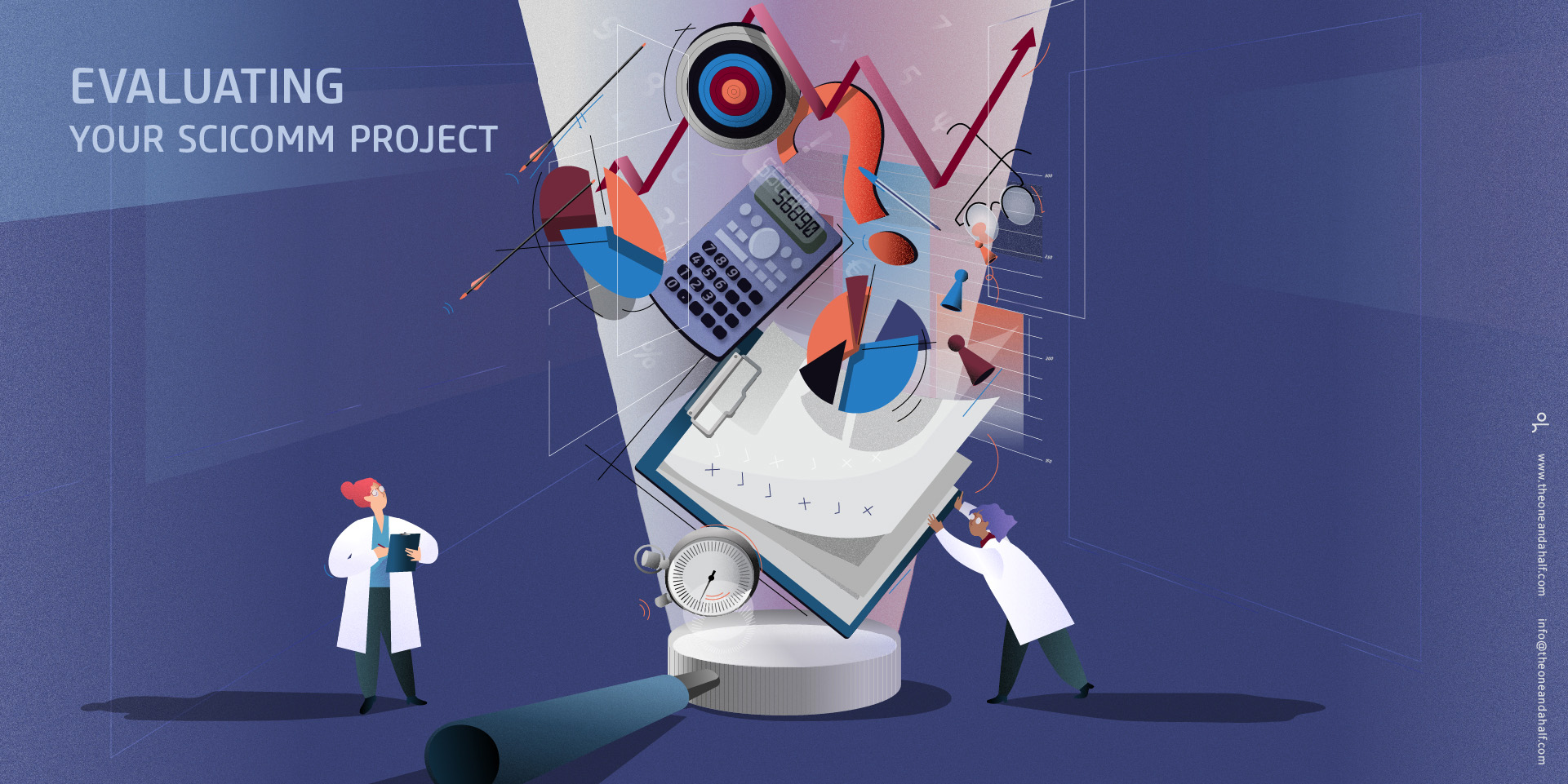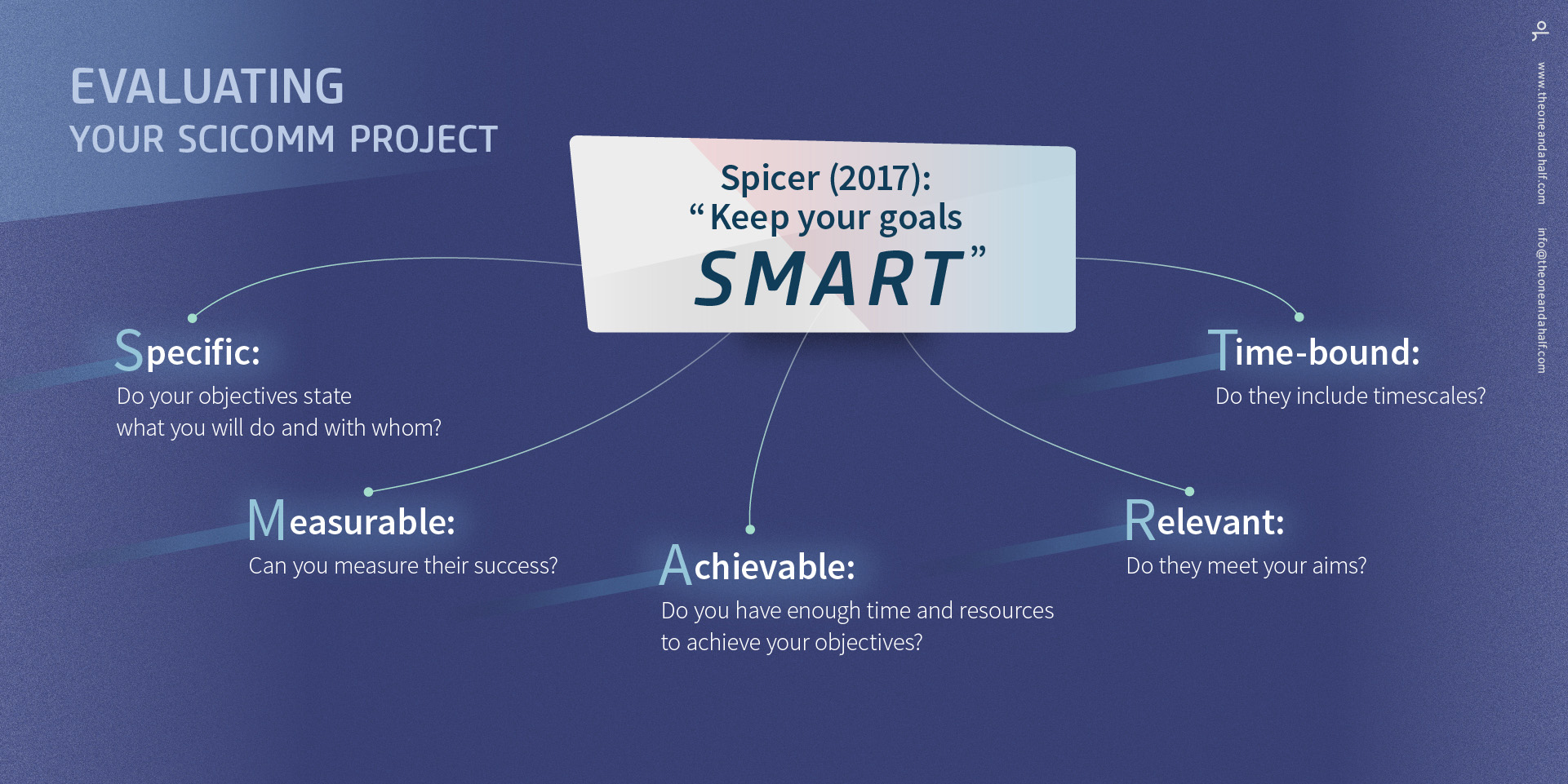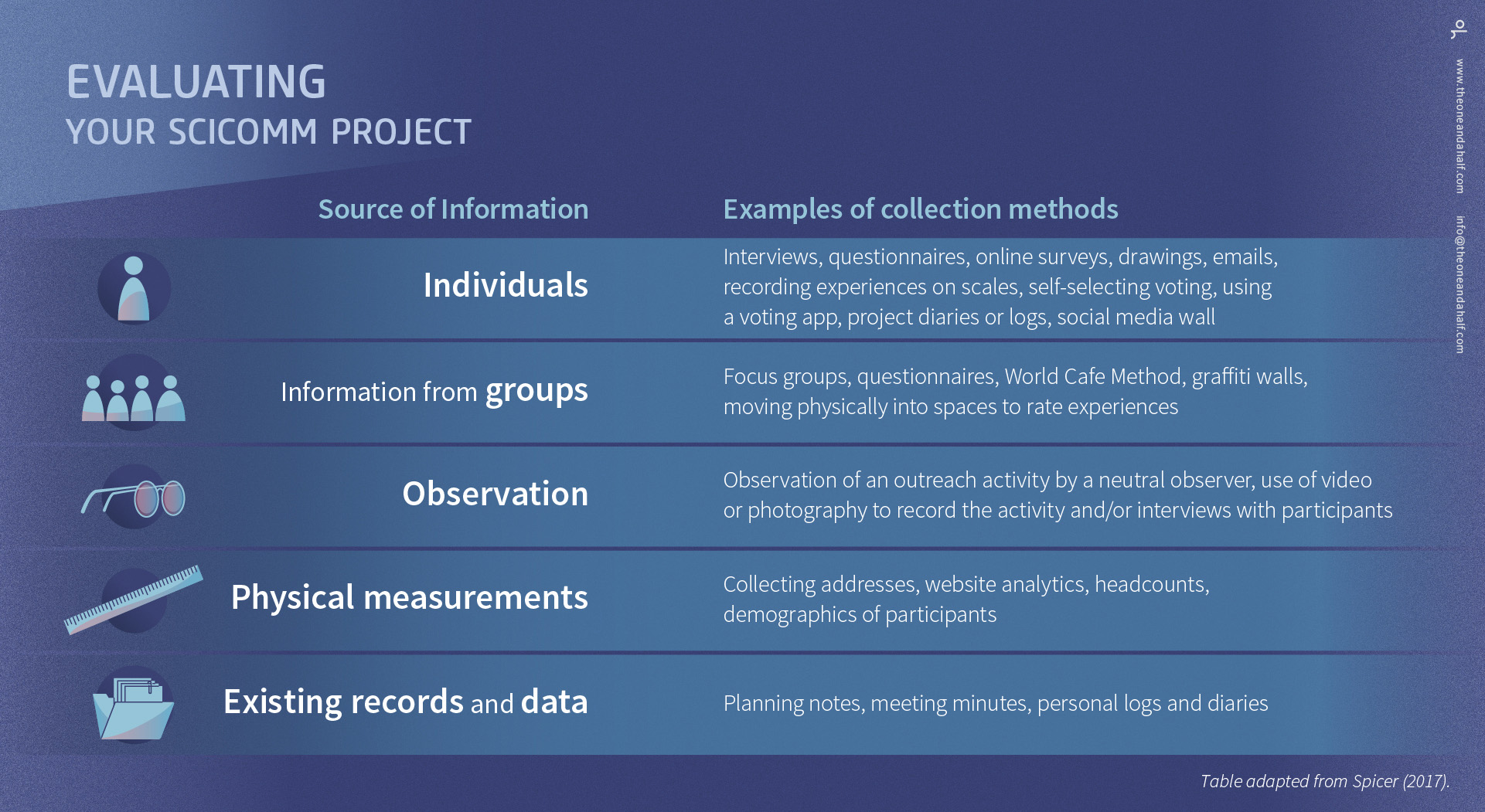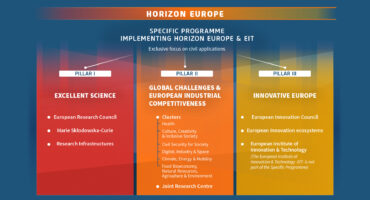How to evaluate your SciComm Project
written by Antónia Ribeiro for one and a half


We make animations, motion graphics and illustrations for your audio-visual communication needs.
Phone: +357 99 658134
Email: info@theoneandahalf.com
One And a Half
28 General Timayia Avenue Kyriakos Building - Block A - Office 301 Larnaca, Larnaca, 6046

So here you are: you planned your outreach activity, you wrote the proposal, the funding was approved, you did what you set out to do.
And yet, at times it can feel like your effort amounted to nothing. You are exactly at the same point as you were before all the hassle. What went wrong and what should have you done differently?
This is a tricky question to answer, even more so when you don't evaluate your activities
Evaluation is often overlooked. It can make or break your initiatives, give context for your success and guide your future steps. It will tell you what did and didn’t work, and most importantly, why.
Besides improving the quality of your project, it will increase the robustness of your grant applications. Evaluation proves the value and impact of your initiative.
This is a thorough procedure that needs to be planned from the beginning of your outreach project. Consider it as research on its own.
Approach evaluation as a gradual process that organically follows every step of your activity. It is not a hill you have to climb, it’s a lovely afternoon hike.
1. Decide your goal.
We touched on this subject in “How to choose the method”. What do you want to achieve with your outreach activity? Raise awareness of a problem? Increase youth literacy in science or engage your community in sustainable practices? One and a Half helps you transform your ideas into animations that will match your project goals.
2. Set your objectives. Break your goal into smaller objectives. For example, to increase youth science literacy you may set two objectives: do a presentation in schools and write a children’s book about Anti-matter. Spicer (2017) advises to keep the goals SMART:

3. Consider your audience (you may have read our article and be already an expert on this topic).
For evaluation, the audience is not only the public but also you, your team and your partners.
4. Measure your success. Create evaluation questions - they should be specific and based on your goal and objectives. Don’t forget to consider your resources when preparing your questions. If you don’t have the time or the team to analyse the data you collect, there is no point in collecting it at all. And be realistic about what you can assess.
5. Collect your data. This can happen both after the activity or before. The data taken before an activity sets a baseline. For example, if you want to measure how your activity impacted people’s attitude towards political sciences, you can ask their opinion on the subject at the beginning and end of the activity. Take into consideration that not always do the participants want to partake in the evaluation of the activity.
6. Analyse everything. This is when you get the answers to your question. How exactly to analyse your results depends on the data you collected. Questionnaires and forms can be transformed into graphs. If you created a website or a social media page, you need to look into the platform statistics. You can find more information on data analysis here.
When you decide your objectives, you realise what data you need to collect. When you understand the data you want, you can design your collection method.
Data can be collected through forms, focus groups, team meetings, social media’s statistics or even through silent bystanders.
For best results, you should aim for a mixture of qualitative and quantitative data. Qualitative measures tell you the “why” of your results. They are insights into the workings of your subject. Quantitative research gives you objective numbers that measure your variable, thus allowing you to predict outcomes.
In the table below, you can find examples of data collection methods.

*source link → World Cafe Method **source link → Graffiti walls
Evaluation is a powerful ally for your science communication strategy; With a little love and practice, you can consolidate your analysis into a successful SciCom project.
At one and a half, we are passionate about research communications and getting your findings seen.
Subscribe to our newsletter to receive insights and tips on the best tactics to get your research projects the exposure they deserve.
If you are curious about how your research project can benefit from animation, contact us today for a free consultation at info@theoneandahalf.com OR here. If you found this article helpful, please let us know in the comment section below!
Illustrations and infographics by Christina Kalli.
Written by Antónia Ribeiro
Antónia was a Biologist, once upon a time. She transitioned from the glamorous world of lab benches and international conferences to her one true love - Science Communication.
Portuguese by birth, Antónia is based in Malta. Besides being a freelance science writer, she works as a Social Media Manager for a research magazine and manages an Erasmus+ project for strategic partnerships.
Antónia has a Bachelor in Biology and a Master’s in Biomedical Research from the University of Coimbra, in Portugal. In her free time, she pets street cats and educates people on Portuguese gastronomy - often against their will.
You can find her on Linkedin.


